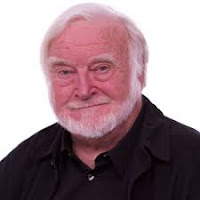LifeSkills is a Pathway to Authentic Happiness, Well-Being
and a Fulfilling Life!
We draw upon the wisdom of
Aristotle, Buddha, Confucius, Dalai Lama, Matthieu Ricard and Swami Satyananda
as well as Martin Seligman, Mihaly Csikszentmihalyi, Sonja Lyubomirsky, Ed
Diener, Jonathan Haidt, Sigmund Freud and Abraham Maslow.
Our programmes help you to
• Dispel the myths surrounding happiness
• Discover your signature strengths and virtues
• Learn skills that make life happier,
fulfilling and worth living
• Achieve your potential to be a winner - an
authentic, alive, responsive, fulfilled human being
• Benefit from the wisdom of ancient sages and
research findings of modern day scientists to transform your life.
Basic
Pillars on which our programmes are founded:
Positive Psychology
Positive Psychology is the scientific study of
the strengths that enable individuals and communities to thrive. The field is
founded on the belief that people want to lead meaningful and fulfilling lives,
to cultivate what is best within themselves, and to enhance their experiences
of love, work, and play.
Positive education
Positive education is defined as education for
both traditional skills and for happiness. The high prevalence worldwide of
depression among young people, the small rise in life satisfaction, and the synergy between learning and
positive emotion all argue that the skills for happiness should be taught in
school. There is substantial evidence from well controlled studies that skills
that increase resilience, positive
emotion, engagement and meaning can be taught to school children.
Positive Health
The field of medicine has long focused on the
prevention, diagnosis, treatment, and cure of disease. But health is more than
the mere absence of disease. The emerging concept of Positive Health takes an
innovative approach to health and well-being that focuses on promoting people’s
positive health assets, which might include biological factors, such as high
heart rate variability; subjective factors, such as optimism; and functional
factors, such as a stable marriage—strengths that can contribute to a
healthier, longer life.
Yoga
Yoga is not an ancient myth buried in oblivion.
It is the most valuable inheritance of the present. It is the essential need of
today and the culture of tomorrow. All of us have potential which is beyond
even our wildest dreams, but most of this potential remains untapped. Each person
has the capacity to experience different planes of consciousness, yet most of
live in the lower planes, without experiencing higher levels of existence, or
even believing they exist.
Meditation
Meditation is a practice that
makes it possible to cultivate and develop certain basic positive human
qualities in the same way as other forms of training make it possible to play a
musical instrument or acquire any other skill. The primary goal of meditation
is to transform our experience of the world but it has also been shown that
meditation has beneficial effects on our health. Scientific experiments have
shown that twenty minutes of daily practice of meditation can contribute
significantly to the reduction of stress, whose harmful effects on health are
well established.
Laughter Yoga
Laughter
Yoga is a combination of laughter exercises and yogic breathing that
strengthens our immune system and generates feel good hormones in the body.
Laughter is triggered with the help of exercises which soon turns into real and
contagious laughter with eye contact and childlike playfulness. It is a simple
yet profound method of busting physical, mental and emotional stress in one go.
Yoga
Nidra
Yoga Nidra is a systematic method of inducing
complete physical, mental and emotional relaxation. During the practice of yoga
nidra, one appears to be asleep, but the consciousness is functioning at a
deeper level of awareness. A single hour of yoga nidra is as restful as four
hours of conventional sleep.
Surya Namaskara
Surya
Namaskara is a well-known and vital technique within the yogic repertoire. It
is almost a complete sadhana in itself, containing asana, pranayama and
meditational techniques within the main structure of the practice. Surya
namaskara can be easily integrated into our daily lives as it requires only
five to fifteen minutes’ practice daily to obtain beneficial results remarkably
quickly.
Our Founders
Between them, the founders
of LifeSkills, Jagat Singh Bisht and Radhika Bisht, have a rich experience of
life, yoga, meditation, laughter yoga, behavioural science and positive
psychology; established numerous laughter clubs and served as Skype laughter
club leaders.
Jagat Singh Bisht is a happiness coach, laughter yoga master
trainer, author, blogger, keynote speaker and behavioural science trainer. He
was a corporate trainer with a Fortune 500 company and laughter professor at
the Laughter Yoga University. His areas of specialization are behavioural
science, positive psychology and laughter yoga.
Radhika Bisht is yoga teacher and laughter yoga master trainer. She was
associated with the Laughter Yoga University as a yoga teacher and laughter
yoga master trainer. Her areas of specialization are yoga, meditation, laughter
yoga and fun games.
Contact:
Phones:+91
7389938255/9893262333/7314062333
















